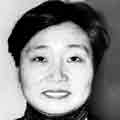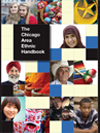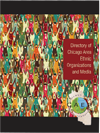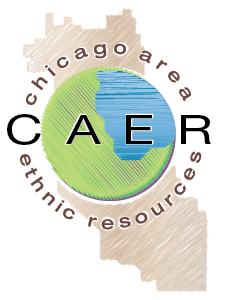-
The 1.5 generation
By Jae Choi

I am a 1.5 generation Korean American. No one knows quite where or when that terminology was coined, but we use it as if the whole world knows what it means. The 1.5 generation refers to Korean Americans who were born in Korea but educated mostly in the United States. We came as little children to this country, holding our parentsʼ hands, and adopted America as our own.
I came to this country at the age of 9 and have lived here 25 years. This is my “gohyang” (my home, my place of growth). My culture is Korean; I was reared by Korean parents. But my consciousness, values and thoughts were formulated here. My country is America.
Being a 1.5 Korean American carries a lot of responsibility. As the term suggests, Iʼm someone in between Korean and American. When Iʼm among people who consider themselves to be Korean, Iʼm not quite one of them. My thinking and values are different from those of traditional Koreans. And yet, when Iʼm with “Americans,” I am not quite one of them either. I may think and act “American,” but others do not view me as American. To them I am Korean no matter how many times I say that Iʼm not just a Korean, I am a Korean American. Sadly, Asian Americans live with this stereotype. In the mind of America, Asian Americans are forever foreigners.
The 1.5ʼs are expected to be a bridge between the mainstream and the marginalized Korean community. As newcomers in this country, the first-generation, immigrant Korean Americans have put their energy into providing food and shelter for their family. Their reason for being is to work, save, and buy a house in a good neighborhood so that their children can get a good education. That is the American dream. They work and sacrifice so their children can achieve and become a “somebody” in this country. And the 1.5 generation must then work incredibly hard, to vindicate their parentsʼ hard work and sacrifice by being successful.
I did not always have a Korean American identity. When I first immigrated as a child to Chicago, I attended a racially mixed grammar school. I identified myself as a Korean because the first question people asked of me was, “Where did you come from?” Throughout high school I identified as a Korean. I participated in cultural days, proudly presenting my food, song and dance. It was not until I went to college that I developed a new identity.
In college, at the University of Chicago, I met foreign students from Korea. Interacting with them, I realized I was different. By that time, I had forgotten my Korean. When they ridiculed me and said I was not a Korean because I could not speak the language, I learned to speak it out of anger. I wanted to prove I was Korean. Although I eventually spoke the language fluently, I still knew I was different from them. My thought processes, my values and my mannerisms were different from theirs.
It wasnʼt until I graduated in 1983 that I called myself a Korean American. Rather than going off to graduate school or getting a job in the mainstream market, I decided to join my parents in their small garment business because they were having difficulties. Working with my first-generation parents allowed me to experience first-hand just how hard it was to be an immigrant pursuing the American Dream. They sacrificed so we could be financially secure and become fully American.
But neither financial security nor education can make us American, because by todayʼs standards Americans are either white or black.
Today I feel confident calling myself a Korean American, because of my community service and advocacy work over the past decade. The Korean American community wants so much to build relationships with other communities and groups. We want to be a part of America. We simply donʼt know how to yet. As newcomers, we lack the savvy, the social and communication skills to share our dreams and sentiments. Within the community, hopes are high that the 1.5 generation can do that in the future. Unfortunately, most of us are going to college and then moving on to mainstream America without a relationship with the Korean American community. Too few are returning to the community with mainstream skills to be that bridge.
The Rodney King verdict in 1992 was a rude awakening for my community. The Los Angeles riots threw Korean Americans onto the center stage of America for a brief moment. Images of Korean American shopowners in conflict with their neighbors were beamed across the country, out of nowhere and without context.
Korean Americans have been scapegoated for an unjust social system and institutional neglect of poverty that we neither created nor had any control over. Half the loss during the riots was sustained by Korean American businesses, and we suffered irreparable damage to our image as people. Only disembodied images of us were presented to America. Korean Americans felt betrayed and bitter that the police did not protect our civil rights and property. Government failed to respond to our needs. We now know the price of being economically strong but socially and politically invisible.
To explain to the rest of America what it means and how it feels to be a Korean American is the responsibility of the 1.5 generation. To become a bridge between the immigrant families and the rest of society at large; to become educators, not only teaching the Korean American community about other groups and cultures, but educating America about us.
That is my role as a member of the 1.5 generation: to help Korean Americans become part of the American discourse, so that we can be part of the American fabric.
Jae Choi is founder and past president of the Korean American Citizens Coalition.
Return to Links & Features
Available Now!
The
Chicago Area Ethnic
HandbookEasy-to-use chapters on the histories and traditions of
37 ethnic groups.
Second Edition
UPDATED and EXPANDED!

The Directory
of Chicago Area Ethnic Organizations
and Media Who they are, what they do and how to reach them.
Third Edition



